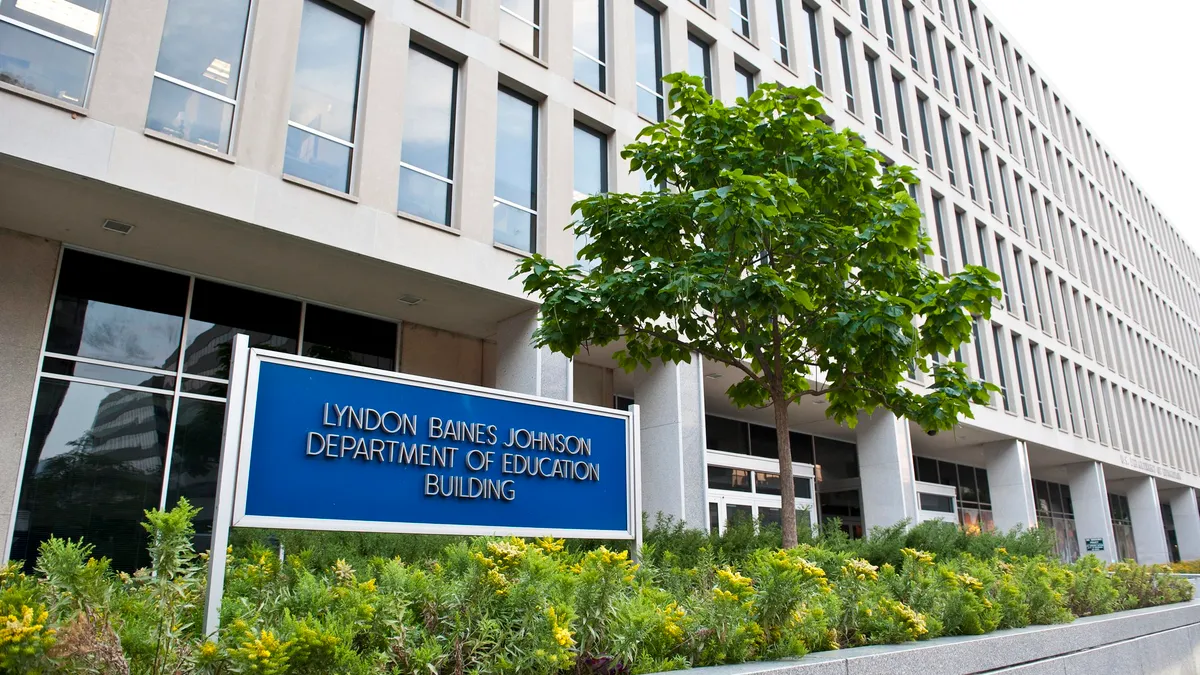Dive Brief:
-
The Alaska Department of Education and Early Development is under fire from the U.S. Department of Education for failing to comply with maintenance of equity provisions required to receive COVID-19 aid under the American Rescue Plan.
-
The Education Department designated the state as high risk for future ARP grant funding, a classification that will remain in place until the state proves its compliance, according to a March 27 letter sent to the state agency. Alaska is the only state to have been designated as such under the ARP provision.
-
The action follows a string of correspondence dating back to last year when the department told Alaska it could make supplemental payments to the highest-poverty districts to make its funding equitable.
Dive Insight:
According to the Department of Education's calculations, the state owes over $16 million to Anchorage School District — the state's largest district — alone.
Alaska disputed the federal agency in a March 22 letter, saying it met maintenance of equity requirements and questioned the Education Department's constitutional authority in setting state compliance requirements.
"Alaska enjoys a good working relationship with USDOE and is certainly not looking for a constitutional law legal dispute," said Deena Bishop, commissioner of education for Alaska, in her March 22 letter to the department. "But we would be remiss not to note that although the federal government has the ability to place conditions on a state’s acceptance of federal funds, there are limits to that authority under the Constitution."
The disagreement over Alaska's federal aid follows significant confusion over the maintenance of equity provision that was put in place to help ensure school systems didn't disproportionately cut the budgets or staffing of high-poverty schools with the receipt of the federal emergency pandemic aid.
The requirement was meant to prevent supplanting and make sure historically marginalized students receive an equitable share of state and local funding during the pandemic, in addition to federal dollars.
The Education Department first defined the provision in June 2021 guidance on American Rescue Plan funds that said states cannot disproportionately reduce per-pupil spending for high-need districts or decrease per-pupil spending below fiscal 2019 levels for the highest-poverty districts. It also prevented districts from disproportionately reducing state and local per-pupil funding for high-poverty schools and from disproportionately cutting the number of full-time staff in those schools.
These requirements lasted until the end of fiscal year 2023, or the end of the 2022-23 school year.
Despite the guidance, state and district education leaders expressed confusion on how to enforce the provision, such as which spending data they should rely on to determine equitable per-pupil funding.
In June 2022, the Education Department solidified its guidance in a final rule clarifying how to ensure states and districts did not make disproportionate budget and staffing cuts.
The Education Department doubled down on its warning in its March 27 response to Alaska's letter that questioned the department's enforcement of the ARP provision. The agency marked the state as "high-risk" for receiving future Education Department ARP grant funding, saying "Alaska must address the outstanding non-compliance."
Alaska has 10 days to request that its high-risk status be reversed. "Failure to comply may result in additional, appropriate enforcement actions including potential withholding proceedings or the recovery of ARP ESSER funds," the Education Department said. Alaska's DOE did not respond to K-12 Dive's request for comment.
While the Education Department has the power to withhold funds if states do not meet various federal requirements, it rarely chooses to do so.
In 2023, the department threatened to withhold a quarter of Maine Department of Education's funding for Title I, after the federal agency said the state failed for two consecutive school years to meet assessment requirements. As a result, it was designated "high-risk" for Title I Part A funds and risked losing $117,422 federal dollars for fiscal year 2022.
Maine disputed the department's claim, saying withholding funding “would be unreasonable, disproportionate, and unfair, given the fact that no other state has received such sanctions.”












